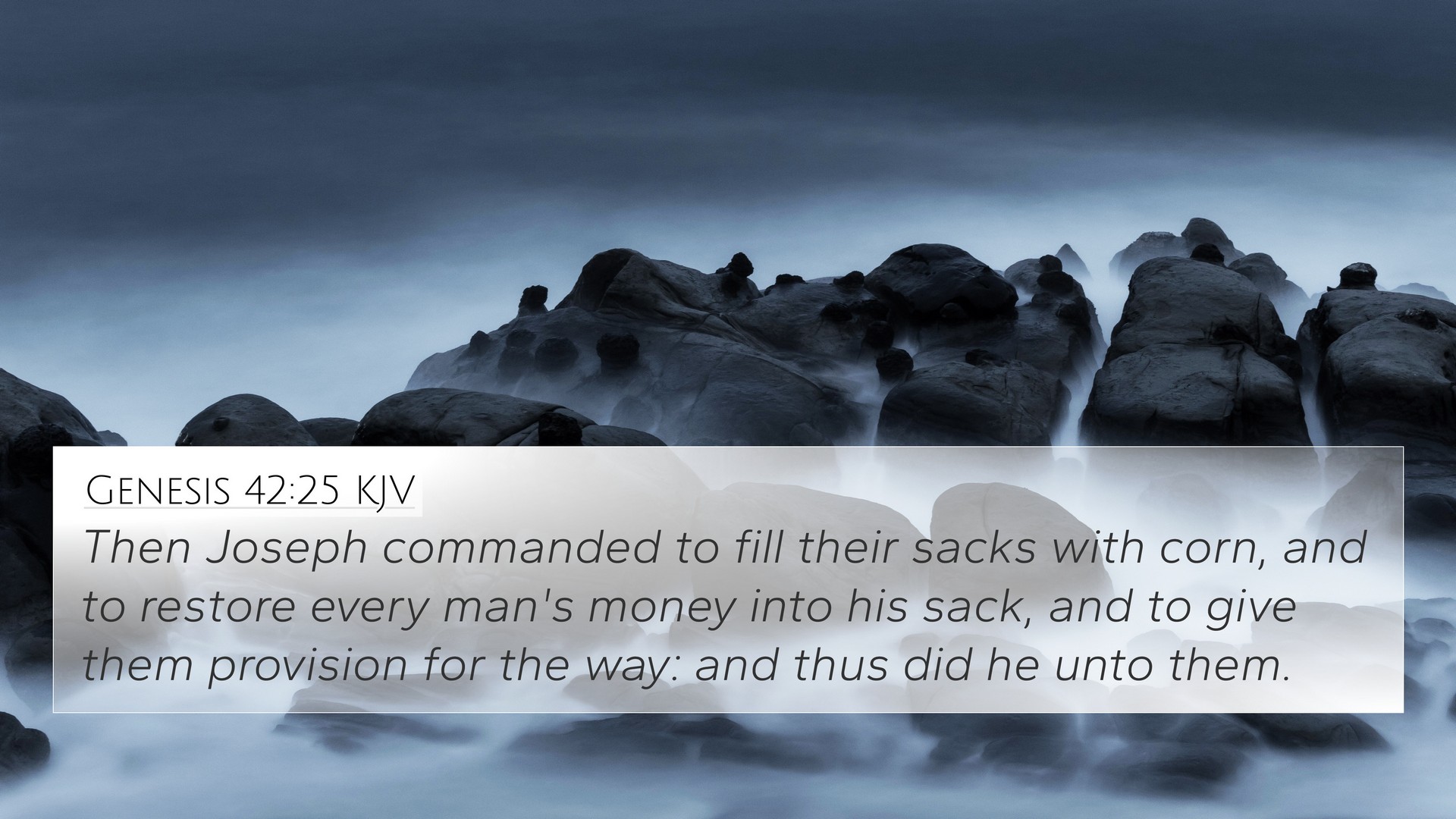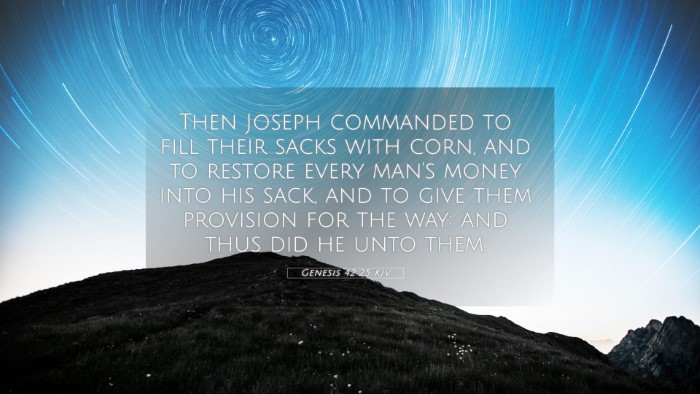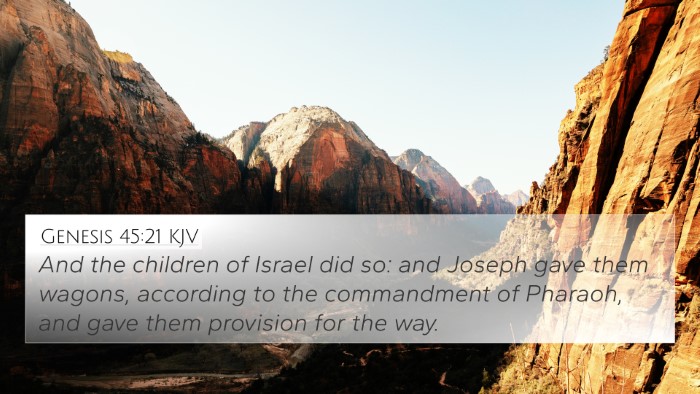Understanding Genesis 42:25
Text: "Then Joseph commanded to fill their sacks with corn, and to restore every man's money into his sack, and to give them provision for the way: and thus did he unto them."
Overview
Genesis 42:25 is set against the backdrop of Joseph's interactions with his brothers during their visit to Egypt during a time of famine. This passage highlights themes of mercy, providence, and the intricate dynamics of Joseph's relationship with his brothers.
Contextual Analysis
This verse occurs during a significant moment in the narrative where Joseph, now a powerful figure in Egypt, encounters his brothers who had previously wronged him. The actions described in the verse not only reflect Joseph's authority but also hint at his inner motivations towards his brothers.
According to Matthew Henry, Joseph’s actions can be seen as a mixture of generosity and a test for his brothers, requiring them to reflect on their past misdeeds. Albert Barnes emphasizes Joseph's underlying intention to restore familial bonds while discreetly steering the actions of his brothers. Adam Clarke interprets this as a divine orchestration, facilitating a reconciliation process.
Thematic Connections
Genesis 42:25 raises various themes pivotal to understanding the larger Biblical narrative:
- Divine Providence: The verse illustrates how God orchestrates events for the ultimate good of His people.
- Forgiveness and Restoration: Joseph’s act of kindness speaks to the power of forgiveness and the desire for healing within fractured relationships.
- Test of Character: This moment serves as a test not just for the brothers but reflects Joseph’s growth and maturity in handling familial relationships.
Cross-References
This verse connects to several other scriptures throughout the Bible, reinforcing its themes:
- Genesis 37:26-28: The betrayal of Joseph by his brothers.
- Genesis 45:4-5: Joseph reveals his identity and his intentions of reconciliation.
- Psalms 105:16-17: God's handling of Joseph's journey in Egypt as part of His greater plan.
- Matthew 5:7: Blessed are the merciful, for they shall receive mercy.
- Luke 6:38: The principle of giving and receiving, correlating with Joseph’s provision for his brothers.
- Romans 8:28: God working all things together for the good of those who love Him.
- 2 Corinthians 5:18-19: The ministry of reconciliation in Christ, reflecting the larger theme of forgiveness.
Inter-Biblical Dialogue
The connections between Genesis 42:25 and its cross-referencing scriptures demonstrate the unity of the Biblical narrative. The themes of betrayal, mercy, and divine purpose echo through both Testaments, showcasing God's consistent character and His plans for redemption. For instance, the themes present in Genesis also resonate through the teachings of Jesus about forgiveness in the New Testament.
Practical Applications
The insights gleaned from Genesis 42:25 encourage readers to:
- Reflect on personal grudges and seek opportunities for reconciliation.
- Recognize God's hand in their life circumstances, particularly during trials.
- Practice mercy and generosity in their relationships, following Joseph's example.
Conclusion
Genesis 42:25 is rich in meaning and significance, serving as a microcosm of pivotal Biblical themes. By exploring its context and thematic connections, we deepen our understanding of the nature of God’s providence and the transformative power of forgiveness.
Further Study Tools
For those interested in deeper scripture study and analysis, consider utilizing:
- Bible concordance for finding related verses.
- Bible cross-reference guides to identify connections within the scripture.
- Cross-reference Bible study methods for thematic examination.









